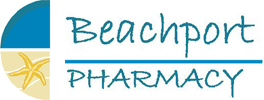May
2013
It's Time to Control Asthma
1356 – It’s time to control asthma – 1st May 2013
World Asthma Day is an annual event organised on the first Tuesday in May by the Global Initiative for Asthma (GINA) to raise awareness and improve the care of asthma. This year GINA is continuing with the theme “you can control your asthma”, but now with the addition of “it’s time for control”.
Australia has more people with asthma than just about anywhere else in the world. About 10% of the Australian population (more than 2 million people) have asthma. Everyone knows someone – a friend or family member – with asthma.
Asthma is a potentially very serious condition likely to cause at least discomfort, quite possibly severe disability and perhaps even death. So, learning “asthma first aid” is a simple skill that could save someone’s life
In Australia, the number of deaths from asthma each year declined from about 1,000 some 20 years ago to less than 300 in 2005, but in the past few years it has been increasing again to more than 400.
During the winter, colds and flu are major causes of cough and congestion, but these are not the only conditions which affect our ability to breathe freely.
A variety of factors can trigger the inflammation which causes the symptoms of asthma – wheezing, shortness of breath, chest tightness and coughing, particularly at night or in the early morning. These trigger factors include allergies, viral infections and inhaled pollutants such as tobacco smoke, dust and dust mites. Cold air exposure and exercise can trigger asthma, as can reflux disease and certain medicines in people with super-sensitive airways. Even laughing (said to be the best medicine!!), especially in children, has been shown to trigger asthma.
Identification and avoidance of trigger factors goes a long way towards asthma control. But most people with asthma will need preventer and reliever medicines as well.
What medicine is best and how often it should be used depends on whether the asthma is classified as intermittent, mild persistent, moderate persistent or severe persistent.
We don’t yet have all the answers as to the exact underlying cause of asthma – or why some people have airways more naturally sensitive – nor do we have the perfect single treatment.
Most people who live with asthma think they are in control of their condition, but the reality is very different. According to Asthma Australia up to 90% of people with asthma do not use their inhalers correctly and only around 20% have a written Asthma Action Plan.
As well, many people with asthma are unaware of asthma first aid. These procedures are essential to know, not only for everyone with asthma, but also if you have someone with asthma in your family or you’re caring for someone with asthma. And it’s especially important for teachers to know about asthma first aid. The State Asthma Foundations have available Asthma Emergency Kits which include basic equipment and instructions for use to assist someone having an asthma attack; and the Foundations can provide education and training on the use of the kits. Check out the website www.asthmaaustralia.org.au for more details; and look for the latest edition of Asthma Update.
Also, the Pharmaceutical Society in Australia (PSA) has recently revised the Asthma and Asthma Medicines fact cards. These cards provide the latest information on how asthma can be well controlled so that people with asthma can live a normal and active life, free of symptoms.
The cards are available from all pharmacies in Australia that provide the PSA Self Care health information. Phone 1300 369 772 for the nearest location; or alternatively log onto www.psa.org.au and click on “Self Care” then “Find a Self Care Pharmacy”.
By being prepared with good asthma management strategies we should all breathe a little more easily.



















There are no comments yet for this post.